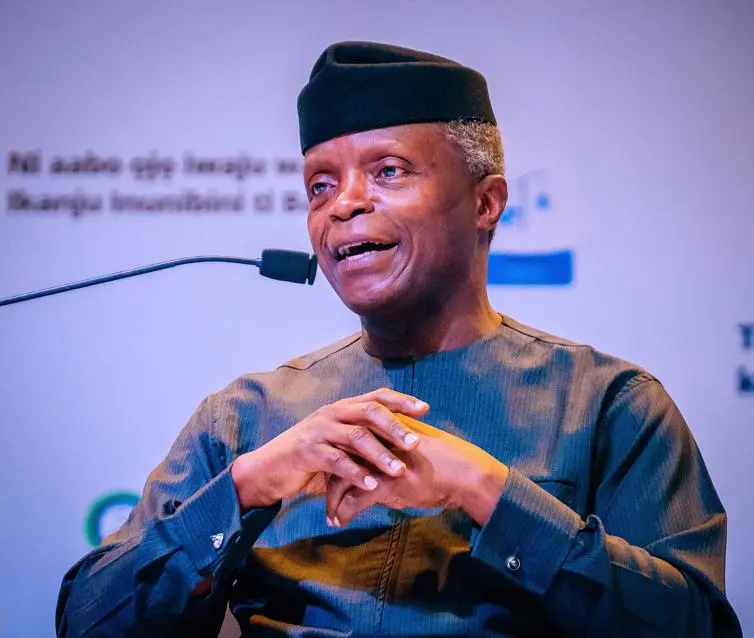The Vice President of Nigeria, Prof Yemi Osinbajo has said that energy poverty has to be tackled headlong for African countries to attain middle-income status and an inclusive prosperity for its people.
Osinbajo’s spokesman, Laolu Akande, in a statement on Tuesday, in Abuja, said the vice president delivered a Special Public Lecture at the University of Pennsylvania (UPENN) in Philadelphia, U.S.
The vice president spoke on the title “Energy Transition in Africa.”
Osinbajo outlined specific pathways that would lead to climate-positive economic growth on the continent and at the same time lead to the realisation of the global net-zero emissions targets.
In his words, “Africa’s endowments, renewable energy, natural resources and a young workforce, present a compelling set of circumstances for several pathways to climate-positive growth.
“Low emissions consumption and production, the point being that Africa can, instead of going the carbon-intensive path to providing energy, goods and services for its own needs, take full advantage of green technologies and practices.
“There is the distinct advantage that Africa can actually pursue a green course of growth without worrying about costly legacy infrastructure.”
Read Also: Chinese climate envoy invites Kerry for climate talks
The vice president said that the second pathway had to do with the recognition that global zero-carbon ambitions could be realised without intentional carbon removal technologies and practices.
He said that Africa could ramp up her own potential to do it at scale through a combination of planned land use and ecosystem management, and investment in emerging engineered removal technologies.
“The third pathway is that, with its abundant reserves of renewable energy and raw materials, Africa can become a hugely competitive green manufacturing and energy hub for the world that could also accelerate the greening of global industry.
“Thus, the paradox of an energy-poor continent becoming the green industrial powerhouse of the world is easily resolvable and must be,” he added.
The vice president proposed that the developed world change its perception of Africa.
He charged that the continent should not be seen merely as a victim but as a solution in the climate change conversations and the attainment of the global net zero targets by 2050-2060.
On energy poverty, Osinbajo argued that it could only be resolved if there was a significant investment in renewable energy.
“And that can only happen if we create the energy-intense anchor demand that makes the investment in additional renewable energy bankable.
“Therefore, it is not which comes first – renewable energy generation capacity or industrial deployment, both must be developed concurrently,” he said.
Story was adapted from Enviro News
